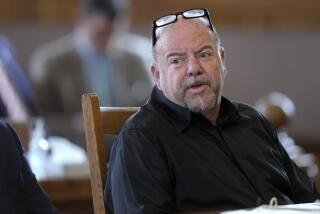Ways Sought to Restrict Access to ‘Dial-a-Porn’
- Share via
WASHINGTON — The Federal Communications Commission, seeking to control the access of young people to sexually explicit recorded telephone messages, Friday responded to an appellate court ruling by requesting public comment on the so-called “dial-a-porn” issue.
A controversy erupted two years ago when it was discovered that hundreds of thousands of calls were being made to a New York recording service operated by the adult-oriented High Society magazine and Car-Bon Publishers.
Many of the complaints were made by parents who received unusually large telephone bills and discovered that the calls in question had been made by their children.
High Society, which was reaping as much as $10,000 a day from charges collected from callers, leased a “dial-it” channel from the New York Telephone Co. in 1983. The magazine won a lottery to get one of the phone firm’s 21 such channels, which are more commonly used for services ranging from weather and sports information to “dial-a-prayer.” On such channels, the user has complete control over the content of any message.
Time Limit Set
To curb calls by children under 18 to recorded messages that offer the sounds of actual or simulated sexual behavior, the FCC decided last June to require that the recording services operate only between 9 p.m. and 8 a.m. However, credit card users could call 24 hours a day.
But the U.S. 2nd Circuit Court of Appeals in New York overturned the FCC ruling last November, holding that the agency’s analysis was inadequate to support its contention that time limits were the least restrictive way to protect young persons from “dial-a-porn.”
On Friday, the FCC asked for public comment, until May 14, on alternative approaches to the problem. Commissioners are considering screening or blocking calls with specialized equipment in homes or at the local telephone company’s central office and requiring special identification numbers to actually hear the messages.
However, the commission has not ruled out a modified version of its earlier proposal for time restrictions, said James M. Talens, chief of the domestic services branch of the FCC’s mass media bureau.
More to Read
Sign up for Essential California
The most important California stories and recommendations in your inbox every morning.
You may occasionally receive promotional content from the Los Angeles Times.













